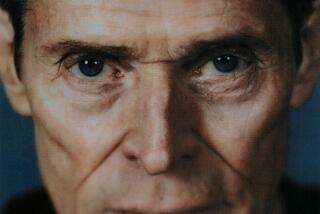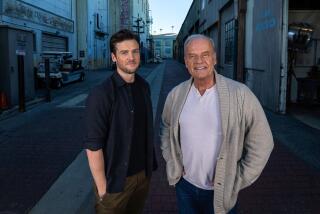Freddie Highmore discusses juggling acting, writing, producing and directing on ‘The Good Doctor’
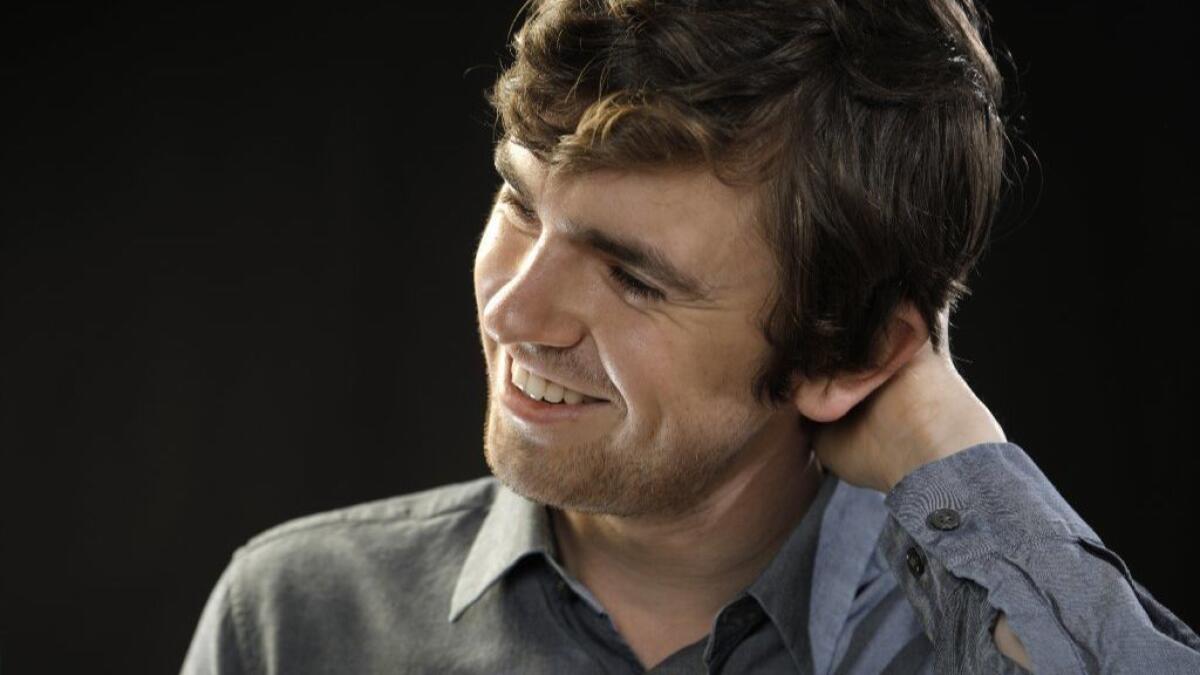
Roughly 72 hours after the end of “Bates Motel,” A&E’s psychological horror drama, its star, Freddie Highmore, signed on to a new ABC series, “The Good Doctor.” Can you blame him? Based on a South Korean TV show of the same name, it was developed by David Shore (“House”), with Highmore cast as Dr. Shaun Murphy, a savant autistic surgical resident at a San Jose hospital.
Moreover, Highmore, now 26, was offered the chance, as he puts it, “to be involved on more than just an acting level,” meaning to produce as well as write and direct, as he had with “Bates.” “It seems odd to put so much of yourself into a season, then say, ‘I’ll see you in five months,” says Highmore, a former child actor best known for the title role in Tim Burton’s 2005 “Charlie and the Chocolate Factory.”
Recently, Highmore, who nabbed a Golden Globe nomination for his truly moving “Good Doctor” performance, talked about why he’s glad to be London born, the genesis of Shaun’s clasped hands and how those with autism are often lumped together rather than seen as individuals. “The phrase that’s common in the autistic community,” says Highmore, quoting “Good Doctor” consultant Melissa Reiner, “is, ‘When you’ve met a person with autism, you’ve met a person with autism.’”
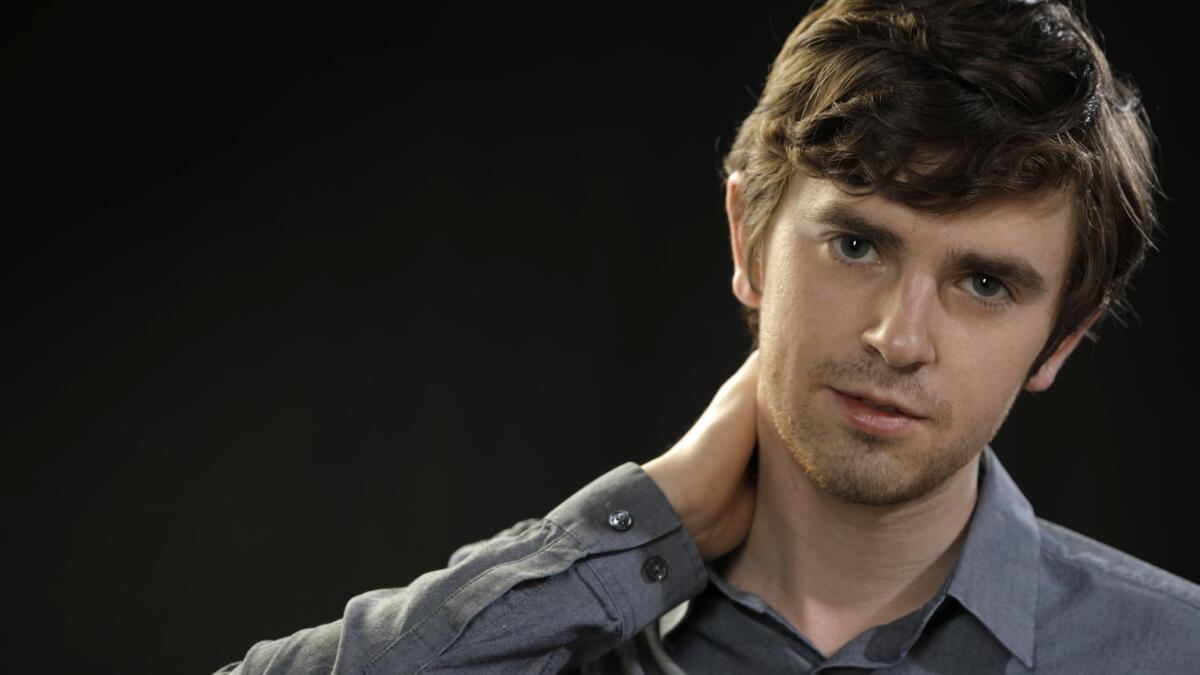
What was David Shore’s “Good Doctor” pitch?
We spoke mostly about Shaun and the development of his character over time. People who aren’t aware of autism in a personal way or haven’t watched the show sometimes say, “How will Shaun change? He’ll always have autism. What’s his arc going to be?” So one of the things we discussed early on is, “Yes, he’ll always have autism. But he’s going to change continuously as an individual as he adapts to this new world that he finds himself in.” That was exciting to me: This individual, regardless of whether or not he’s on the spectrum, is going on a journey as a character.
How much autism research did you do?
There are people in my personal life who have autism. It was a condition I was aware of. I [read a lot]. I saw a brilliant documentary on Netflix called “Autism in Love,” which is great because it focuses on the most human, deepest emotion that we may feel, which is being in love.
Talk about creating Shaun’s distinctive mannerisms.
The way Shaun holds his hands is something that makes him stand out. For me, that came from two places. Kids with autism [used to be] encouraged to clasp their hands together in order not to stim, [a term describing repetitive movements or sounds]. It’s called “quiet hands.”
WATCH: Video Q&A’s from this season’s hottest contenders »
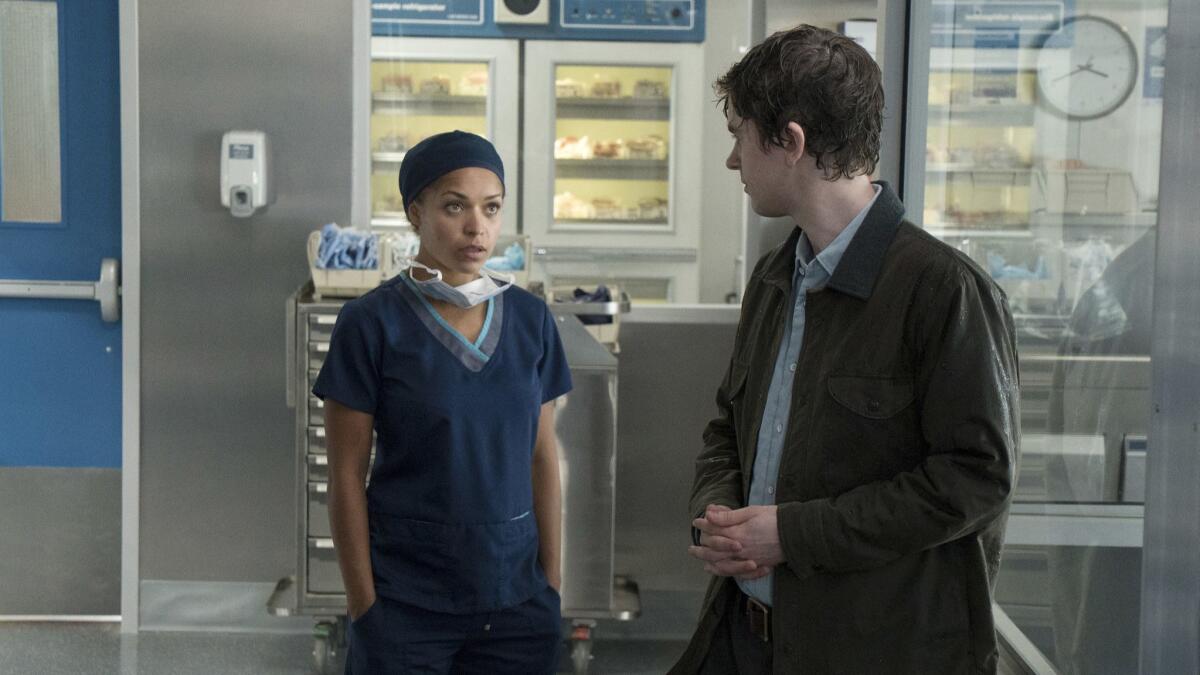
And the other origin?
Surgeons, in an operating room, consider the front of the body as sterile and often stand in this position [Highmore holds his hands in front of him and above his waist] to keep their hands sterile. So that particular mannerism is sort of half something that’s a trauma, that’s been forced upon him and is also something that’s natural for surgeons to do, so there’s a comfort there too.
Has Shaun changed your world view?
Shaun is naturally optimistic and upbeat, tries to see the good in people. I’m perhaps more naturally cynical, being a Brit. [laughs] And I don’t think Shaun has any of that in him. He probably makes me a better person in that way. Shaun is also a happier person to portray than Norman Bates. It’s probably a healthier mindset for me to be in.
You’ve said that your four years at university helped determine your career path. Explain.
I was fortunate to grow up in the U.K. Particularly in L.A., I’d have been defined as an actor from a very young age. Whereas in London, it was not in any way the biggest part of how people saw me. At university, I didn’t do any acting at all. I studied Spanish and Arabic and lived in Madrid for my year abroad. Then I did the first season of “Bates” before returning to my last year at university. It came along at a great time because it helped me make that transition from being a younger adult to an adult actor. It felt like the thing I’d been waiting for to confirm that this was something that I wanted to do.
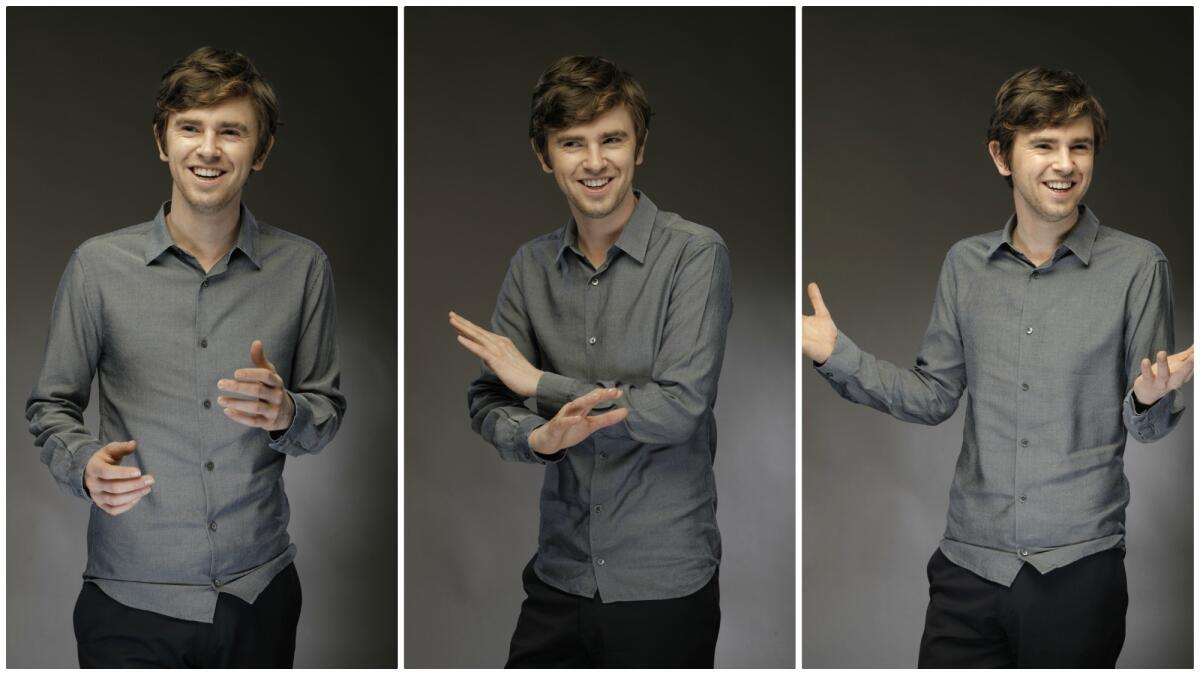
More to Read
From the Oscars to the Emmys.
Get the Envelope newsletter for exclusive awards season coverage, behind-the-scenes stories from the Envelope podcast and columnist Glenn Whipp’s must-read analysis.
You may occasionally receive promotional content from the Los Angeles Times.

